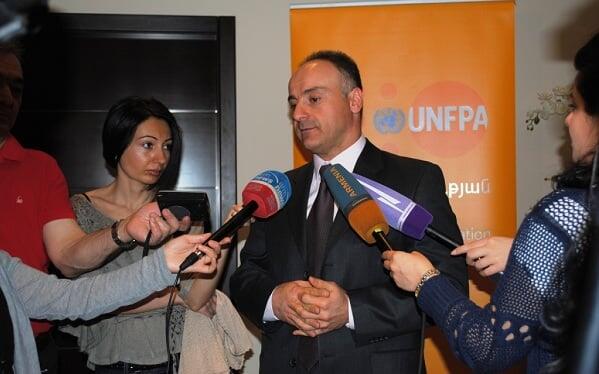Nearly 93,000 women will be missing in Armenian society by 2060 if the country’s high pre-natal sex selection rate remains unchanged, according to projections included in a new report released by UNFPA on 2 May.
With 114 boys born for every 100 girls in 2012, Armenia has one of the highest sex imbalance levels in the world, surpassed only by China (118) and Azerbaijan (116). The imbalance is particularly dramatic for third births: the record level of 173 sons born for every 100 daughters has no known equivalent anywhere else in the world.
“The patriarchal structure of Armenian society, which favours sons over daughters, is one of the reasons for the heavily skewed sex ratio in the country,” said Christophe Guilmoto of the French Research Institute for Development, the study’s author.
The “abortion culture” inherited from the Soviet period and easy accesses to technologies allowing parents to know the sex of their child before birth are other important factors, he added.
Armenia’s low birth rate also plays a role, according to the study. As parents have fewer children as a result of economic conditions, repeated pregnancies is no longer the preferred solution to ensure the birth of a son.
If imbalances remain at the current level, a sizable surplus of young men will materialize from 2020 onwards, the study projects. Already now, male children born after 1996 outnumber female children by almost 39,000.
The deficit of young women will make it difficult for men to find partners and may lead to increased emigration levels among young males.
For Garik Hayrapetyan, UNFPA’s Representative in Armenia, tackling the problem of selective abortions needs to begin with addressing the gender imbalances ingrained in Armenian society: “We need much stronger efforts to promote understanding of the positive contribution of women and girls in society, and bring an end discrimination based on gender, starting in the families.”


